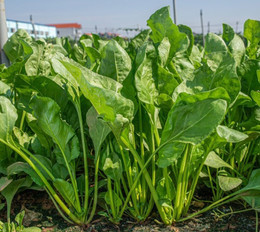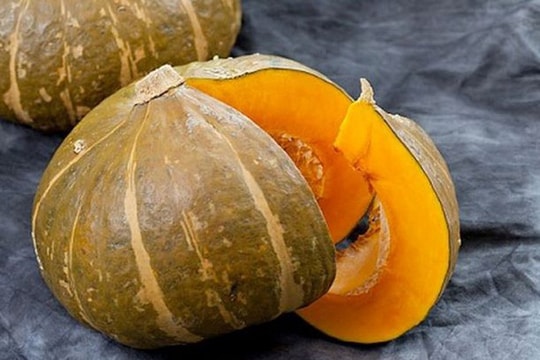King of vegetables prevents and supports cancer treatment
Spinach contains up to 35 nutrients, considered the "king of green vegetables" good for the elderly, children, heart and cancer patients.
Physician Bui Dac Sang (Vietnam Institute of Science and Technology, Hanoi Oriental Medicine Association) said that spinach, also known as spinach, is considered the "king of vegetables". This vegetable is good for both adults and children, especially people with cancer and cardiovascular diseases. Spinach can be stir-fried, cooked into soup, or blended to drink.
According to physician Sang, there have been many studies evaluating the medicinal and preventive effects of spinach. This vegetable contains 35 essential nutrients for the body such as vitamins A, C, E, and a good source of plant omega-3 for humans. This vegetable contains lathykoid, which reduces appetite and helps you lose weight. The vegetable also prevents osteoporosis because it contains a lot of potassium, manganese, magnesium, and calcium.

Spinach also helps form red blood cells, transporting oxygen and nutrients throughout the body, improving anemia.
Vegetables also boost immunity, protecting the body from environmental factors such as bacteria, viruses, fungi, etc. This food is good for fetal development, preventing birth defects because it contains a lot of folic acid and vitamin B6, which helps keep eyes healthy.
Vitamin K and fatty acids such as omega in spinach are good for the heart. 100g of spinach contains 4 times the daily requirement of vitamin K. People taking anticoagulants (warfarin) are advised to take a fixed amount of spinach every day and monitor the effects of the drug regularly under the advice of medical staff.
Spinach is also a golden food for cancer patients. According to the Nutrition Center, K Hospital (Hanoi), this is a vegetable that has many effects on human health.
Spinach is rich in beta-carotene, vitamins A, C, K, manganese, iron, folate, fiber and several anti-cancer chemical compounds.
Many studies have evaluated the effects of spinach on diseases, including cancer.
Breast cancer: Research shows that women with high plasma carotenoid concentrations have a 15-20% lower risk of breast cancer than those with lower concentrations.
Lung cancer: Groups that consume foods rich in quercetin, lutein, and zeaxanthin may have a reduced risk of lung cancer.
Gastrointestinal cancer: People who consume foods rich in lutein have a reduced risk of developing colorectal, stomach, and esophageal cancer. Studies on patients with oral, laryngeal, and bladder cancers have shown similar results.
However, the studies are mainly observational and experimental, so it is not possible to reach a final conclusion about the effects of phytochemicals in spinach./.



